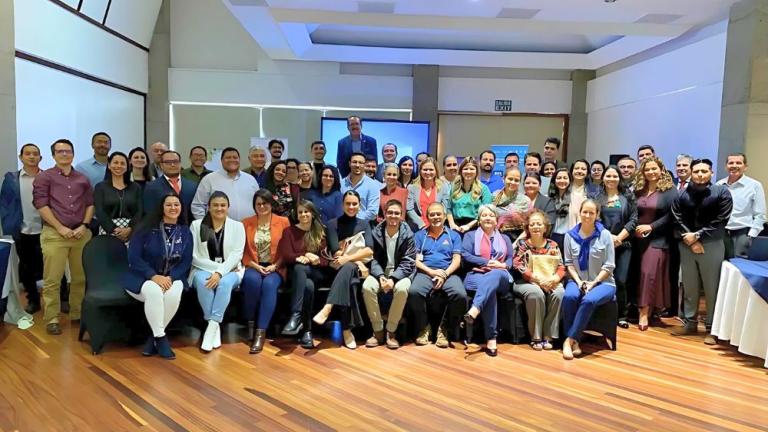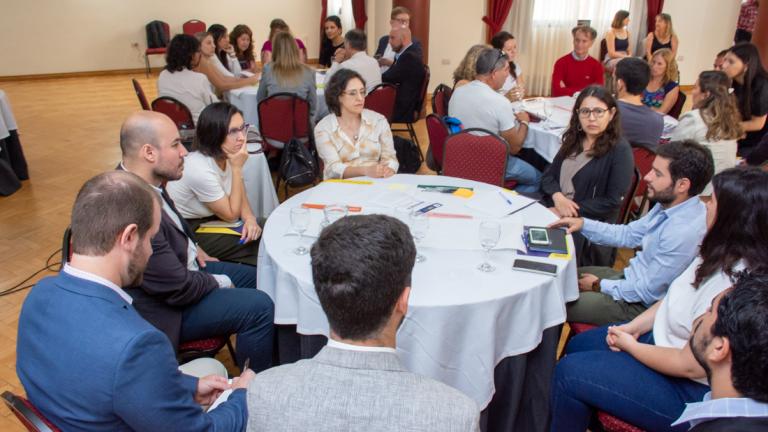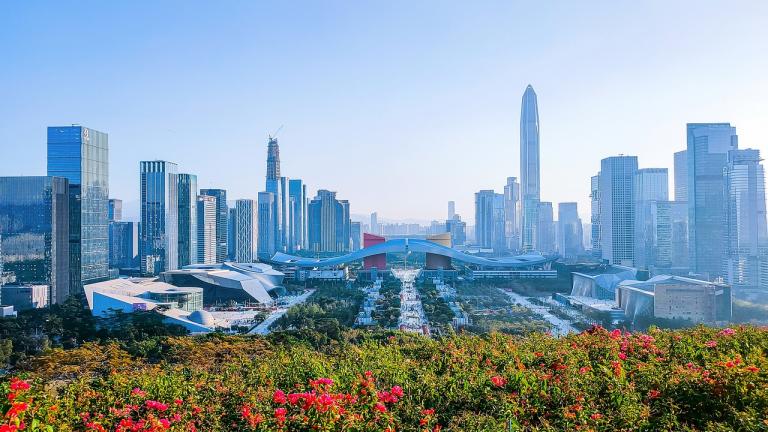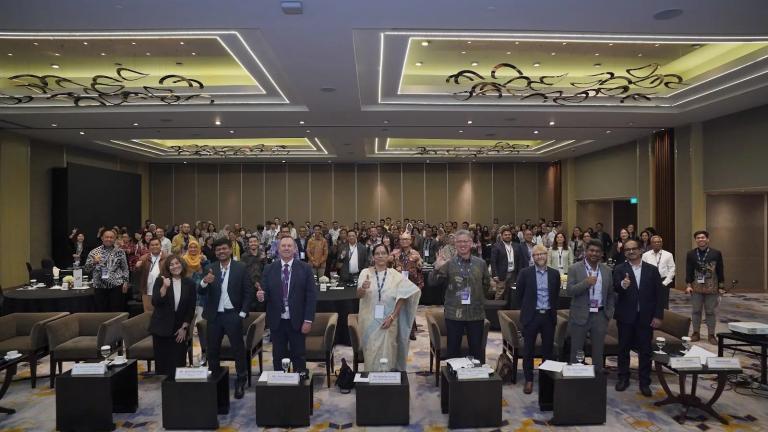Analysis
Cities: Indonesia’s Biggest Climate Problem – and Its Best Solution
This event brought together government agencies, local city representatives, and international development organizations to discuss how Indonesia can meet its ambitious NDCs and align with its 2030 SDGs.
By Karishma Asarpota and Saheel Ahmed (ICLEI - Local Governments for Sustainability)
The first UrbanShift National-Local Dialogue was held on August 29-30, 2023, in Jakarta, Indonesia, marking a critical step towards building sustainable, low-carbon cities across the country. Organized by ICLEI Indonesia’s partnership with the Ministry of National Development Planning (BAPPENAS), this event brought together government agencies, local city representatives, and international development organizations to discuss how Indonesia can meet its ambitious Nationally Determined Contributions (NDC) and align with its 2030 Sustainable Development Goals (SDGs).
The Five Themes
At the heart of the dialogue were five core themes, designed to guide city-level initiatives in Jakarta, Semarang, Balikpapan, Palembang, and Bitung. These themes focus on transforming urban areas into greener, more resilient, and inclusive environments:
- Circular Economy and Waste Management
- Water Resources Management
- Energy Efficiency and Renewable Energy
- Sustainable Transport
- Urban Biodiversity and Landscape Preservation
Why Cities Are Key to Indonesia’s Climate Future
Cities are at the heart of Indonesia's climate future because they are major contributors to greenhouse gas emissions and key drivers of sustainable solutions. Urban areas in Indonesia, home to over half of the country's population, are responsible for a significant share of energy consumption, waste production, and transportation emissions. This makes cities pivotal in achieving Indonesia’s ambitious NDCs and long-term climate goals. However, cities also present the greatest opportunity for transformation. By adopting energy-efficient technologies, sustainable transport systems, and circular economy practices, urban centers can lead the way in reducing carbon emissions. Moreover, cities serve as hubs of innovation, where green policies and climate resilience strategies can be tested and scaled. With proper governance, financing, and community engagement, Indonesia’s cities hold the potential to drive national climate action and set the standard for sustainable urban development.
Navigating Urban Sustainability: Progress and Challenges in Indonesia’s Cities
During Indonesia’s first UrbanShift National-Local Dialogue, participants assessed the country's overall progress and gaps in achieving low-carbon urban development. Indonesia has raised its emission reduction targets to 31.89% unconditionally (i.e., without external aid) and 43.20% conditionally (i.e., with external aid).
Programs like GEF’s UrbanShift are instrumental in helping pilot cities implement these targets. However, financing remains a key challenge, as local budgets are often insufficient for green projects. The dialogue highlighted the need for innovative financing mechanisms such as green bonds, public-private partnerships, and alternative sources like corporate social responsibility funds to bridge this gap. Additionally, governance issues were discussed, particularly the fragmented authority in water management and the need for a collaborative approach in flood-prone areas like Semarang and Jakarta. Furthermore, urban biodiversity initiatives face budgetary constraints, and cities like Palembang and DKI Jakarta need innovative urban designs and strategic planning to overcome these challenges.
Practical Solutions for a Sustainable Future
In an interactive group exercise, participants worked together to propose practical solutions for overcoming challenges in each of the five priority areas. Key takeaways included:
- Waste Management: Cities like Bitung and Palembang are exploring recycling initiatives and plastic waste reduction through community involvement.
- Energy Efficiency: Cities should prioritize LED lighting, solar panels, and the adoption of electric vehicles to cut emissions. The challenge lies in securing funding and overcoming bureaucratic hurdles.
- Water Management: Collaborative master plans, joint commitments, Integrated Water Resources Management (IWRM) optimization, and innovative financing schemes offer pathways for improvement, particularly in flood-prone areas like Palembang, DKI Jakarta and Semarang.
- Urban biodiversity and landscape: Innovative urban designs and CSR (Corporate Social Responsibility) optimization in cities like Palembang and DKI Jakarta are paving the way for enhanced biodiversity and sustainable urban development.
- Sustainable Transport: Initiatives such as bike lanes and solar energy in terminals show promise, with further opportunities in capacity-building, feasibility studies to ensure readiness and integrated public transportation planning between different modes.
What’s Next?
During the second National-Local Dialogue, the progress made since the first dialogue on the status of the agreed-upon multilevel governance roadmap (co-defined by all levels of government) will be shared. Further, local governments will present their specific city-level local project development interests based on thematic areas. In addition, efforts will focus on exploring alternative funding sources beyond local government budgets. This includes tapping into corporate social responsibility funds, soft loans, and green bonds to ensure the success of urban transformation projects. Collaboration between national and local governments, supported by external partners, will be essential for meeting climate targets effectively in Indonesia.
UrbanShift supports cities around the world to adopt integrated approaches to urban development, building an equitable, zero-carbon future where both people and the planet can thrive. Click here to read the summary of Indonesia’s First National-Local Dialogue as part of the UrbanShift program. To learn more about the UrbanShift’s project in Indonesia click here.
If you have any questions or contributions that could support the planning of the next National-Local Dialogue in Indonesia, as part of the UrbanShift program, please reach out to urbanshift@iclei.org.

How Costa Rica is Pioneering a Green Future Through Sustainable Development
The first National Dialogue for Costa Rica addressed challenges from waste management to urban flooding as part of the UrbanShift program.

Argentina’s Road to 2030: Collaborative Climate Action
Argentina's first UrbanShift National Local Dialogue emphasized collaborative climate action, uniting national and local governments to promote sustainable urban development, align with 2030 targets, and enhance governance and financing.

UrbanShift Peer-to-Peer Exchange: Shenzhen Low Carbon City Forum
Targeting Asian cities, the event will discuss City-Business Cooperation in renewable energy, sustainable infrastructure, and the circular economy.

UrbanShift Indonesia City Academy: A Thematic Exploration of Sustainable Urban Development in Asian cities
As cities in Asia face mounting challenges with rapid expansion and climate change, this in-depth training offered valuable insights on nature-based solutions, circular economy, and integrated climate action planning.

